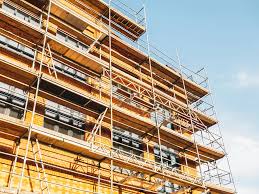Jul . 24, 2024 02:15 Back to list
Innovative Solutions from a Modern Plastic Factory for High-Quality Formwork Production
The Rise of Plastic Formwork Factories in Modern Construction
In the ever-evolving landscape of the construction industry, the emergence of plastic formwork factories has marked a significant shift towards efficiency and sustainability. Plastic formwork, a substitute for traditional wooden and metal formworks, provides a host of advantages that cater to the demands of contemporary construction projects. This article delves into the benefits, applications, and future prospects of plastic formwork manufacturing.
Plastic formwork systems are primarily made from high-density polyethylene (HDPE) or polypropylene, materials known for their durability, lightweight properties, and resistance to various environmental factors. One of the key advantages of using plastic over traditional materials is its reusability. While wooden formwork can typically be used for a limited number of applications before it deteriorates, plastic formwork can be used repeatedly for thousands of cycles without losing structural integrity. This not only reduces waste but also lowers the overall cost of construction projects over time.
The Rise of Plastic Formwork Factories in Modern Construction
In terms of usability, plastic formwork is exceptionally versatile. It can be engineered to create a variety of shapes and designs, allowing architects and builders greater freedom in their projects. This flexibility is particularly beneficial in complex architectural designs that require custom molds. Furthermore, the smooth surface of plastic formwork enables a better finish for concrete structures, reducing the need for additional finishing work, which saves time and labor costs.
formwork plastic factory

The use of plastic formwork is not limited to residential construction; it is increasingly popular in commercial, industrial, and infrastructure projects. From skyscrapers to bridges, plastic formwork systems are successfully used in a myriad of applications. Their lightweight nature makes them easier to handle and transport, which is especially advantageous on construction sites with limited space. As more contractors and builders become aware of these benefits, the demand for plastic formwork continues to rise.
Despite these advantages, the industry does face challenges. Concerns regarding the initial investment costs for plastic formwork systems compared to traditional methods can deter some stakeholders. However, as production techniques advance and the technology matures, these costs are expected to decrease, making plastic formwork more accessible to a broader range of construction projects. Moreover, the development of innovative designs and features, such as interlocking systems and easy-to-assemble components, will likely enhance their usability, driving further adoption.
Looking towards the future, the potential for plastic formwork factories appears promising. As urbanization accelerates and the demand for quick, efficient, and sustainable construction methods increases, plastic formwork is poised to play a pivotal role. Furthermore, with advancements in material science leading to the creation of even more resilient and sustainable plastic composites, the horizon for these factories expands.
In conclusion, plastic formwork factories represent a revolution in modern construction methods, offering significant benefits in efficiency, sustainability, and design flexibility. As the construction industry continues to evolve, it is crucial for builders and stakeholders to embrace such innovations that promise not only economic benefits but also an alignment with global sustainability goals. The growth of this sector will ultimately contribute to a more sustainable future for construction and infrastructure development.
-
Premium Formwork Wing Nuts & Tie Rods | Factory Supplier
NewsAug.29,2025
-
Expert Ringlock Scaffolding: Durable, Safe, Efficient Solutions
NewsAug.28,2025
-
Ringlock Scaffolding: Strong, Safe & Efficient Solutions
NewsAug.27,2025
-
OEM Column Formwork: Circular, Curved & Inclined Solutions
NewsAug.26,2025
-
Premium Scaffolding Jacks: Stable, Adjustable & Durable
NewsAug.25,2025
-
OEM Wall Formwork & Shuttering: Flexible & Curved Solutions
NewsAug.24,2025